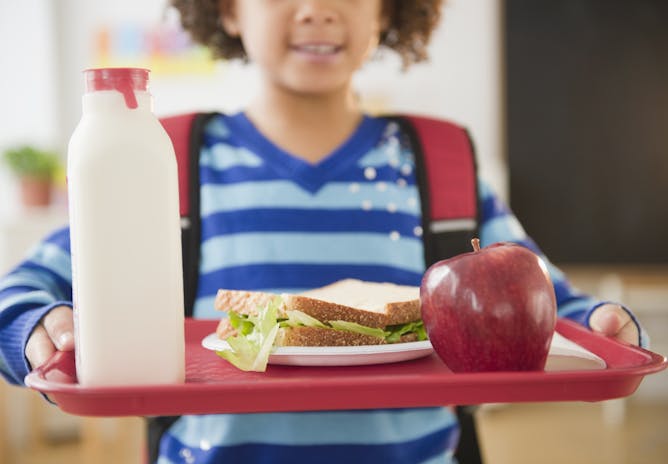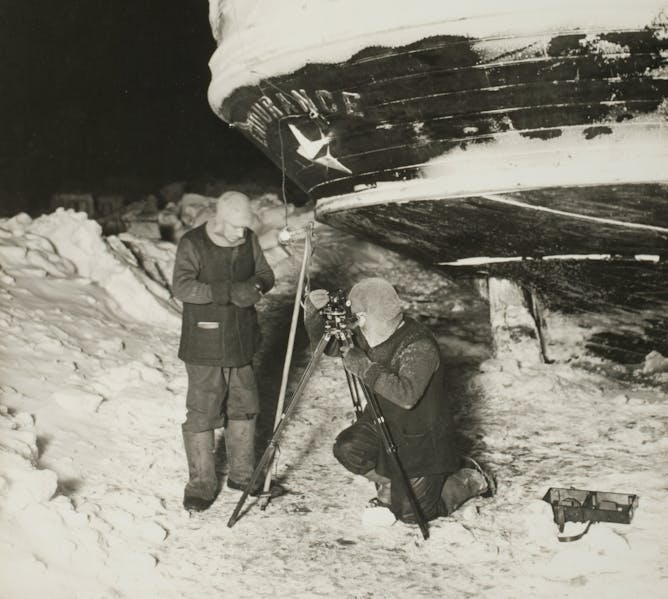|
Welcome to Sunday! Our top five articles of the week are displayed below.
If this email is free of typos and grammatical errors, it’s likely due to the gentle care of my colleagues. My own ability to write today is unreliable because of a night of missed sleep. I also look about as lively as the man in the main photo of this article by University of Florida neurologist Michael S. Jaffee. In it, he outlined the many varied ways lacking sleep affects health and hinders the ability to perform everyday tasks.
When Jaffee wrote the article back in 2018, American adults were averaging just 6.9 hours of sleep per night – a full hour less than in the 1940s, and that was before the COVID-19 pandemic and the war in Ukraine added new worries to make us toss and turn.
Rest assured that I’m trying to get back to my usual routine of a solid eight hours of sleep over the weekend, and I wish you a peaceful Sunday full of rest and reading.
|

About 30 million students eat school lunches daily.
JGI/Jamie Grill/Tetra Images via Getty Images
Marlene B. Schwartz, University of Connecticut
A food policy expert explains how school lunches changed during the COVID-19 pandemic and what’s wrong with going back to the normal system now.
|

Navigator Frank Worsley, left, works with scientist Reginald James to take an observation by the stern of the Endurance.
Frank Hurley/Scott Polar Research Institute, University of Cambridge/Getty Images
Daniella McCahey, Texas Tech University
Accurately calculating a ship’s position by hand in 1915 was easy compared to what the New Zealand-born navigator Frank Worsley had to do next.
|
|
|
-
Christopher Michael Faulkner, US Naval War College; Andrew Stigler, US Naval War College
Ukraine’s President Volodymyr Zelenskyy has asked the US to impose a no-fly zone over Ukraine. Doing so in this kind of international conflict would be unprecedented and might not make sense.
-
Roberto Yus, University of Maryland, Baltimore County; Primal Pappachan, Penn State
Internet-connected appliances tempt people with science fictionlike conveniences, but beneath the sparkling surface lurk potential privacy violations.
-
Mark Satta, Wayne State University
Putin often uses words to mean exactly the opposite of what they normally do – a practice diagnosed by political author George Orwell as ‘doublespeak,’ or the language of totalitarians.
|
|